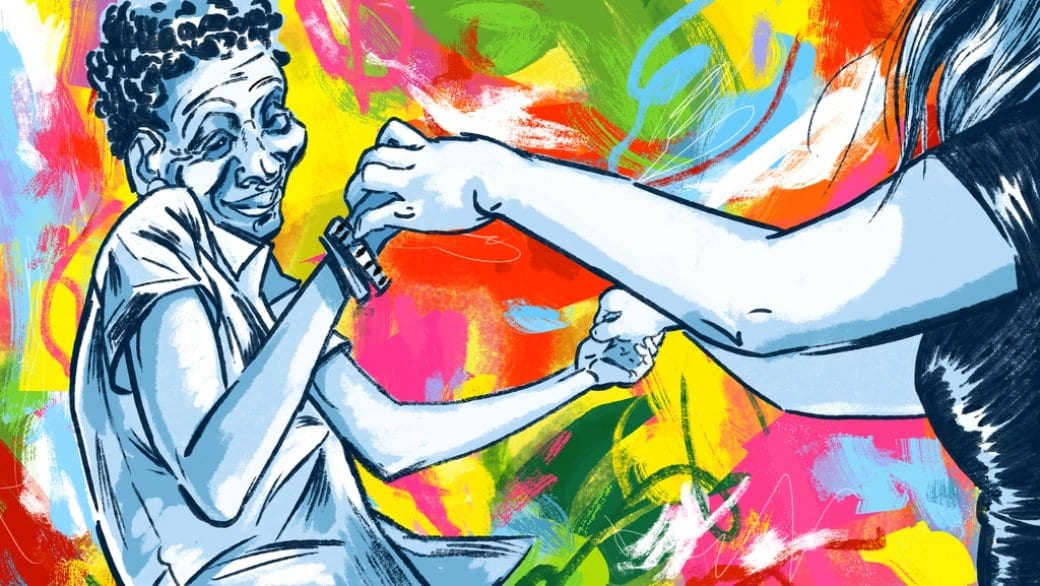In 1899, African Americans had enjoyed 34 years since the final ratification of the Emancipation Proclamation. However, only three early, the Plessy v Ferguson case had upheld racial segregation in railway cars, dictating that black passengers were required to use separate accommodations from white passengers, legitimizing state laws that required racial segregation.
The US Congress had also amended a law to punish “all public prostitutes, and all such persons who lead a notoriously lewd or lascivious course of life,” deleting the word “notoriously” and making the law gender-neutral to widen its scope, punishing sexual wrongdoers as “vagrants.”
On the cusp of a new century, on July 23, 1899, Ruth Charlotte Ellis was born.
Ellis was born in Springfield, Illinois, to Charlie and Carrie Farro Ellis. Her father was a self-educated man who’d been born into slavery and ended up becoming the first African American mail carrier in Illinois, though her mother died when she was 12. At 16 years old, Ellis realized she was attracted to her school gym teacher.
She later got her hands on Radclyffe Hall’s 1928 lesbian novel The Well of Loneliness and researched the term “homosexual” in a psychology book, stating in lesbian magazine Curve that, “My mother died just about the time I started menstruating, so she showed me that, but from then on nobody told me anything.” She had no lesbian role models and little sex education — her father conveniently laid a book on sex education on his desk, assuming she’d “be meddlesome and look in to read it.”
Ellis never had to come out of the closet, as she never felt the need to hide her sexual identity from her brothers and father, and she often had girlfriends over. “Nothing ever happened,” Ellis reportedly told one interviewer, according to an obituary. “Except one night I had this girlfriend stay and we made a little too much noise. The only thing my father ever said to me was, ‘Next time you girls make that much noise, I will put you both out.’”
One of these girlfriends was Ceciline “Babe” Franklin — some sources say they met in the early 1920s, one biographer says in 1936 — a woman 10 years her junior. “Because I was 10 years older than she, I almost shut the door in her face,” Ellis said. “She told me if I ever left Springfield she’d come to where I was. I don’t think it was real love. I just think it was time for me to get away.” They would remain together for over 30 years.
Ellis’ brother encouraged her to make the move to Michigan, Detroit where she could earn more money, so in 1937, Ellis and Franklin moved, eventually buying a house together. Franklin worked as a cook, while Ellis started taking care of children, then got a job at a print shop. “I was working for a printer and I said to myself, if I can do this for him, how come I can’t do it for myself?” Ellis started a print shop in one of the front rooms of her house, producing stationery, fliers and posters, making her the first woman in Michigan to own a printing business.
To the wider world she was a successful businesswoman but behind the scenes she was a community organizer. Throughout the 1940s to the 1960s, Ellis and Franklin’s home became a Detroit “gay spot” for gay and lesbian African Americans. She became a parental figure to young gay and lesbian adults that ended up at her home.
The couple separated amicably in the 1960s when Franklin moved out to be closer to her work and Ellis moved into a senior citizen’s centre. “We were just two opposite people,” Ellis explained. “She liked to drink, go to bars, gamble. I never did all that. Mine was concerts and things like that, going to church and church things.” Franklin passed away in 1973, and she was Ellis’ last relationship.
Less than a week after her 70th birthday, riots at the Stonewall Inn shook New York City and launched the modern American LGBT movement. This sudden surge of larger community and visibility made Ellis something of a celebrity in the community. She was often invited as a speaker at events nationwide and became a fixture at the Michigan Womyn’s Music Festival.
Journalist Kathleen Wilkinson describes in Curve how Ellis led San Francisco’s dyke march in 1999, on her 100th birthday, “where thousands of Bay Area women sang ‘Happy Birthday’ to her, the first of many birthday celebrations over the summer.” Ellis would also see her 101st birthday before quietly passing away in her sleep, but not before, less than a month before her death, she helped dedicate the Ruth Ellis Center in Detroit, a social services agency caring for homeless, runaway and at risk LGBT youth.
Even in old age, Ellis remained socially and physically active. In a documentary on her life, Living with Pride: Ruth Ellis @ 100, friends spoke about her love of dancing and described how people would line up to dance with her, and she would stay on the dance floor while younger people had to sit down to take a rest.
After her appearance in San Francisco she decided to remain at home in Detroit, despite invitations from overseas, presumably to LGBT events, saying, “No, I’m not crossing no ocean, no way.” She requested a memorial service rather than a traditional funeral, and her remains were cremated, spread in special places at the Womyn’s Festival. Some of the ashes also crossed the ocean to be spread in the sea in Ghana.
Ellis’ life spanned three centuries, 101 years of change for black, LGBT people and women, and she is considered the oldest known lesbian and LGBT activist. Despite this, she remained humble to the end.
“Who would want to read a book on my life? I’m nobody! I’m just Ruth!” she said in the Living With Pride documentary. “Yeah . . . who would want to read it?”
History Boys appears on Daily Xtra on the first and third Tuesday of every month. You can also follow them on Facebook.


 Why you can trust Xtra
Why you can trust Xtra


